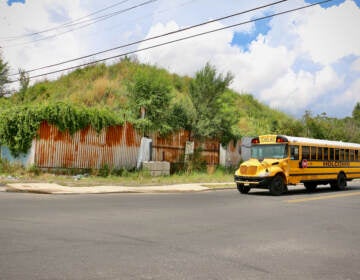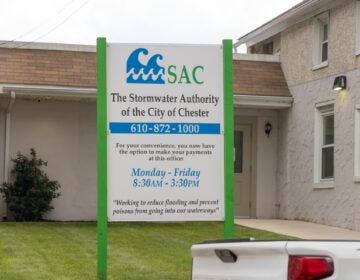Former Camden dump heralded as part Clean Water Act’s 50th anniversary
Cramer Hill Waterfront Park was once the place people from across the region came to dump trash. Now it’s a beautiful park with watersports and fishing.
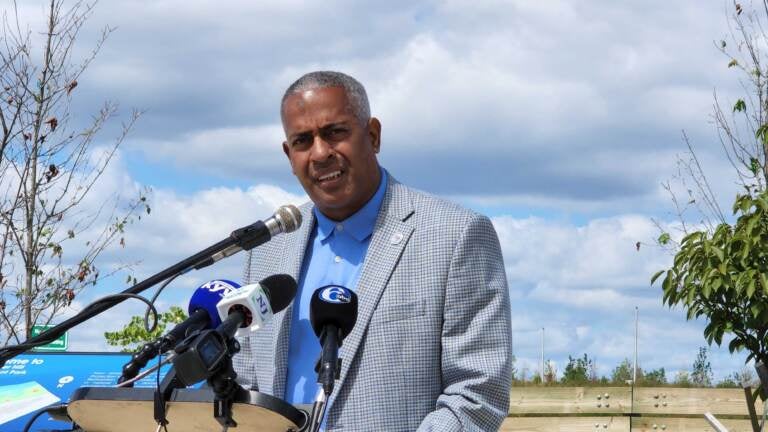
Camden Mayor Victor Carstarphen speaks at Cramer Hill Waterfront Park. (Tom MacDonald/WHYY)
A location in Camden that has undergone a major transformation is now a showcase for its use of federal funds from the Environmental Protection Agency.
Cramer Hill Waterfront Park was once the Harrison Avenue Landfill, one of the worst trash dumps in the region. The landfill operated from around 1952 to 1971 and was never capped or officially closed. This left the site open to unauthorized dumping in subsequent years.
Now, Mayor Victor Carstarphen points to the park as a shining example of how government dollars can be used to improve environmental conditions.
“This was a wasteland right here. Now it’s access to beautiful scenic views, it’s just an indication of people coming together,” he said.
EPA Deputy Assistant Administrator for Water Bruno Pigott is on a tour of places that were transformed over the 50 years of the Clean Water Act. He said Cramer Hill was just part of a nationwide environmental issue.
“There was a time not too long ago, 50 years ago, that our waters were virtually unprotected from pollution. Rivers ran in colors. They caught fire. They were treated as depositories for our garbage, not real natural resources,” Pigott said. “Locally, raw sewage flowed into the Cooper and Delaware rivers, and industrial pollution was largely unchecked.”
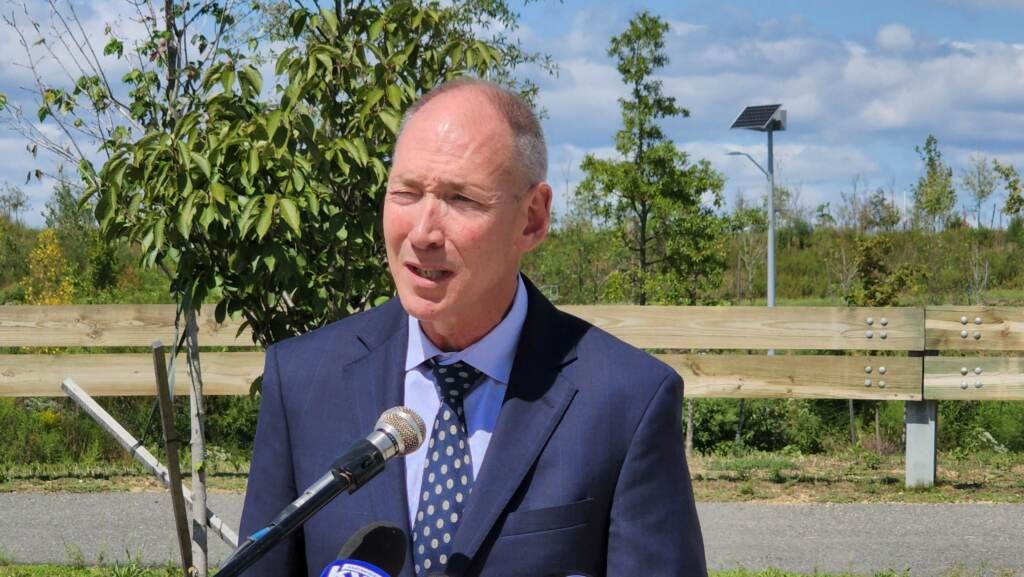
Pigott added that over the five decades a lot of cleanup has happened.
“It’s about real progress. We’ve been able to address frequent street flooding, reduce the amount of sewage backups, overflows, and invest in green infrastructure that makes communities happier and more water resilient,” he said.
Camden County Commissioner Jeff Nash said now thanks to the Clean Water Act, the waterways aren’t ones you are afraid to go into.
“It has reduced bacteria levels to interior streams and rivers in Camden County by more than 95%. That is meaningful change and justice,” he said. “Today, the effluent from our sewer plant located in the city into the Delaware River is actually cleaner than the river water itself.”
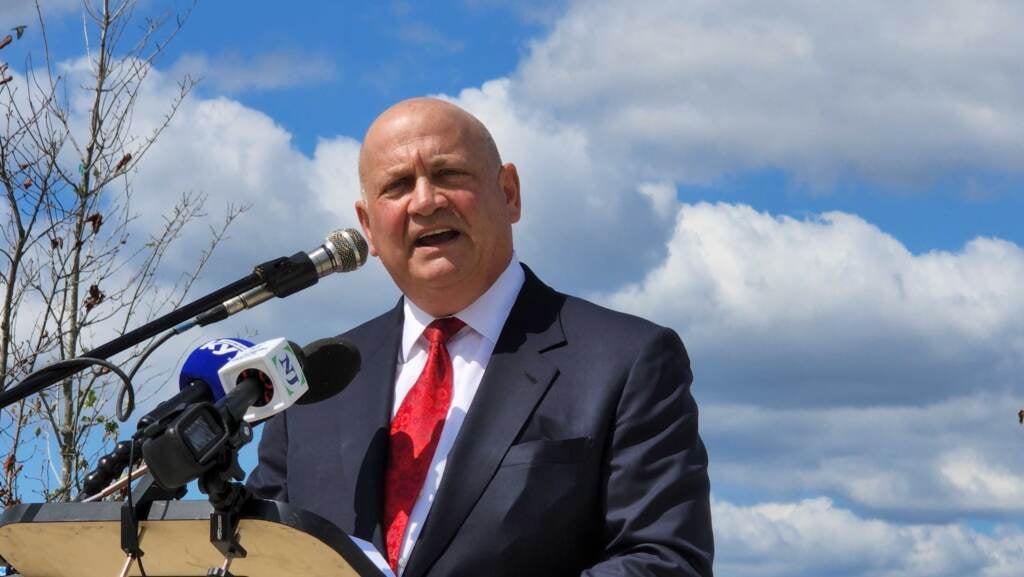
Brandi Johnson of Camden Lutheran Housing says once the dump was cleaned up the neighborhood began a transformation that is still underway.
“Stormwater management, environmental resilience, equity in environmental justice are things people are talking about,” Johnson said.

Johnson spoke about one of the residents in housing owned by the group who makes the trip down the street to fish in the water at Cramer Hill, something that couldn’t have been done before the cleanup.
“The area around the park is undergoing a transformation and there is more housing to come, with great views of the park as part of low-income developments that are coming to the area,” Johnson said.
The work isn’t done yet.
More cleanup and stormwater management projects totaling $150 million will be coming to the area over the next five years as part of the new federal Infrastructure money.
WHYY is your source for fact-based, in-depth journalism and information. As a nonprofit organization, we rely on financial support from readers like you. Please give today.



